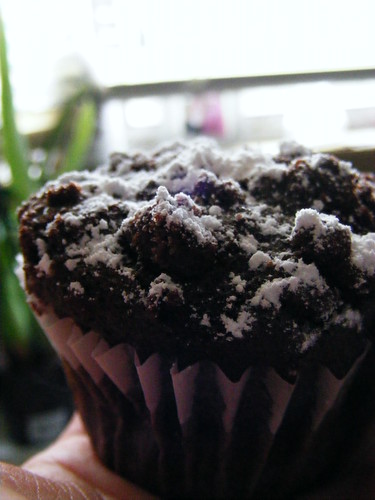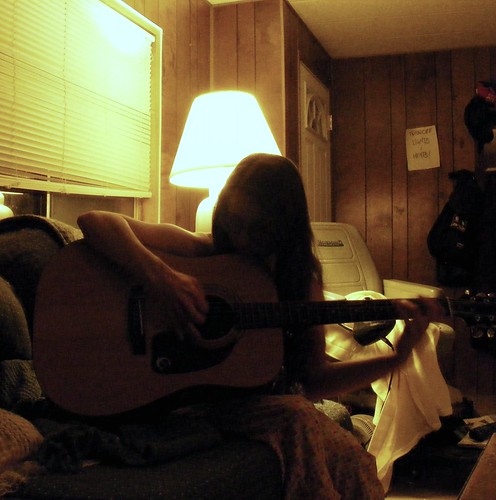Last week my therapist gave me homework: write a letter to my father. Pour my heart out, tell him about all he has missed.
How do you write a letter to a dead man? After 21 years, more often than not I wonder if he was only a dream. But then in an instant, out of nowhere, I hear his voice clear as day, calling my name. Mostly it's just his laugh, and I always catch myself smiling and I might even stand up to go see what's so funny. My rational mind knows that man is nothing but dust and cloth trapped in a box in a cemetery 2,000 miles away from me. My heart believes he's still in the basement, getting gumballs for me and my sister from his secret stash, and we're about to watch the Muppet Show.
What do you say to a dead man? Too much? Nothing at all? If things had Been different, this wouldn't be so hard. When we found him dead in the basement on Mother's Day, I hadn't spoken to my dad in two weeks. He'd had alcohol-induced seizures and was hospitalized in February. He stopped drinking for a while, but started up again a couple months later. I was mad at him, so I stopped talking to him. I don't even remember the last thing I said to him. The only memory I have of him before he died is of he and I watching Star Trek together.
The day of his funeral, the whole family came back to our house for food and bullshitting. My dad came from a large Irish family; there was a ton of food and even more bullshitting. One of my cousins brought my guitar and amp out of my room and started playing. My sister, my best friend and I wandered outside and stood in the driveway staring up at the sky. It was May, hot and muggy, and though the day had been sunny, clouds were rolling in and it looked like a storm was coming. It seemed fitting, since my dad loved a good thunderstorm. I have a lot of memories of him standing out on the patio during a earth-rattling storm, smoking a cigarette and cheering whenever a good clap of thunder rang out. "Get out here and look at this! The clouds are green! All the hair is standing up on my arms!" I'd be cowering at the screen door going, "Dad, you're gonna die! Get in here before you get blown to Oz!"
I guess once you've seen war, a little hail and thunder doesn't get your heart rate up much.
Standing there on that day, the clouds rolled in and suddenly we were drenched. The rain was warm and somehow comforting. I felt like my dad was there, smiling in the rain. I remember laughing and knowing it was okay and even fitting to laugh only hours after seeing my father's body lowered into the ground and covered with dirt. I could almost hear him light up a cigarette (Benson & Hedges) and say, "I'm dead, Kate. It happens to the best of us."
That was Dad, though. He taught me to laugh in the face of fear. I lost sight of that between Then and Now, but it's coming back to me. I remember how scared I'd be when he drank; not because he was abusive or violent, but because I knew what he was hiding from at the bottom of that bottle. I was scared because the man who was there to love me and keep me safe was terrified and sad and running from something that would always be right there with him. If your parents are afraid, who is going to protect you from monsters? From bad dreams?
But I also remember him making us watch scary movies with him, and he would tease us the whole time. "Ew, that guy looks just like you!" I think that's why Mystery Science Theater 3000 struck such a chord with me and my sister; it was kind of like watching Texas Chainsaw Massacre with Dad.
So what do I say? Thank you for being my dad and doing the best you could? I love you for always being straight with me? I hate you for giving up? Would you be proud of me as I am today, or would you be disappointed?
I'll never know. It's all just memory and What If's. I thought I'd come to terms with that a long time ago, but when my therapist asked me if I was close to my father, instead of saying yes, I blurted out, "it's my fault he died." Even though I knew it wasn't true, at that moment I was a little girl again, blaming herself for not helping her dad enough so that he wouldn't have to drink. I thought that if I listened to his war stories, they wouldn't bother him anymore. But a kid doesn't have any concept of what war is like except for what they see in movies. I just listened, hoped he felt better and then waited for him to pass out so I could put out his cigarette, turn off the tv and go to bed.
When he died, I said, "Thank god it's over. He's at peace now." His war had ended but I had no idea it had only just begun for me, my mom and my sister. It took a long time for the three of us to come to terms with our loss and the fact that none of us made him an alcoholic. I do know that my mom still blames herself, and nothing I say will change her mind. My whole life, my dad never said a bad word against my mom, even when they having trouble. I wish she would take comfort in that.
As for me, I don't believe there's anything after death. My dad and what made him "Him" is long gone and all that is left is photographs and memories. I never got to say goodbye to him. He died thinking (so I believe) that I hated him, that he was a failure as a husband and father(he wrote as much in some papers we found from when he was in rehab), that he had let us all down. How do I forgive myself for letting my father die thinking I hated him? How do I forgive him for leaving me?
---------------------------------
Diatribe Against the Dead
---------------------------------
The dead are selfish:
they make us cry and don't care,
they stay quiet in the most inconvenient places,
they refuse to walk, we have to carry them
on our backs to the tomb
as if they were children. What a burden!
Unusually rigid, their faces
accuse us of something, or warn us;
they are the bad conscience, the bad example,
they are the worst things in our lives always, always.
The bad thing about the dead
is that there is no way you can kill them.
Their constant destructive labor
is for the reason incalculable.
Insensitive, distant, obstinate, cold,
with their insolence and their silence
they don't realize what they undo.
-- Angel Gonzalez



